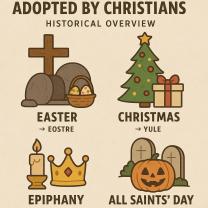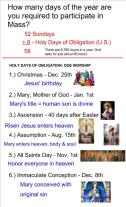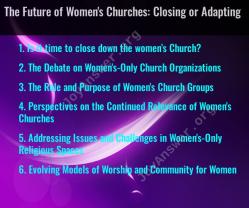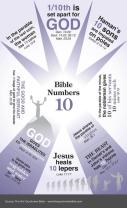Who is the true Church of Jesus Christ?
The question of identifying the "true" Church of Jesus Christ is deeply personal and varies among different faiths and beliefs. Different Christian denominations and traditions hold diverse perspectives on what constitutes the true Church. Here are some viewpoints:
Different Perspectives:
Catholicism: The Catholic Church often asserts its historical continuity from the time of Jesus and the apostles, considering itself the original and true Church founded by Christ.
Eastern Orthodox Church: Similarly, the Orthodox Church claims apostolic succession and views itself as the continuation of the early Christian Church, emphasizing tradition and sacraments.
Protestantism: Protestant denominations emerged from the 16th-century Reformation, advocating for a return to biblical teachings and salvation through faith in Jesus Christ. Various Protestant groups may claim to represent the true Church based on their interpretation of Scripture.
Latter-day Saints (Mormons): The Church of Jesus Christ of Latter-day Saints believes in a restoration of the original Christian Church through revelations received by Joseph Smith in the early 19th century.
Other Christian Groups: There are numerous other Christian denominations, each with its own beliefs and interpretations of Scripture regarding the true Church.
Key Beliefs and Criteria:
Faith in Jesus Christ: Most Christian groups agree on the centrality of faith in Jesus Christ for salvation and consider this belief as a foundational aspect of the true Church.
Biblical Authority: Many Christian denominations regard the Bible as a central authority for faith and practice, using it to define their beliefs and doctrines.
Sacraments/Ordinances: Different denominations emphasize various sacraments or ordinances, such as baptism and communion, as essential elements of the Church.
Love and Service: The true Church is often characterized by its love for God, love for others, and its commitment to serving humanity.
Personal Exploration:
Determining the true Church of Jesus Christ can involve personal faith, spiritual experiences, historical perspectives, and theological convictions. It often requires prayer, study, and exploration of different Christian traditions to discern one's beliefs about the true Church.
Ultimately, the concept of the true Church can vary greatly based on individual beliefs and religious affiliations. It's a deeply personal and subjective matter that varies among different faith communities.
Is there a specific denomination considered the true Church of Jesus Christ?
This is a complex and sensitive question with no easy answer. Throughout Christian history, various denominations have claimed to be the "true" Church of Jesus Christ, each with its own interpretations of scripture, traditions, and practices.
Here's why there isn't a definitive answer:
- Differing interpretations of scripture: The Bible can be interpreted in diverse ways, leading to varying doctrines and beliefs. While some denominations emphasize literal interpretations, others focus on symbolic or contextual understanding.
- Evolving church history: Christianity has experienced numerous schisms and divisions over centuries, with each group interpreting itself as the rightful successor to the original church founded by Jesus.
- Emphasis on different aspects of Christianity: Some denominations prioritize specific aspects like apostolic succession, sacraments, or moral teachings, while others focus on personal faith, spiritual experience, or social justice.
Therefore, instead of a single "true" church, there exists a diverse landscape of Christian denominations, each with its own understanding of Jesus' teachings and the nature of the church.
It's important to:
- Respect the diversity of Christian beliefs: Each denomination holds its own convictions sincerely. Judging or belittling others' faith contributes to division rather than understanding.
- Focus on individual faith: Ultimately, each individual must seek their own connection to Jesus and choose the community that resonates most with their beliefs and values.
- Promote dialogue and understanding: Open communication and respectful engagement between different denominations can foster mutual appreciation and learning.
Remember, the essence of Christianity lies not in claiming absolute truth but in following Jesus' teachings of love, compassion, and service. Focusing on these shared values can bring Christians closer, even amidst diverse interpretations and structures.
I hope this explanation provides some clarity and encourages you to explore different perspectives on this complex topic.













